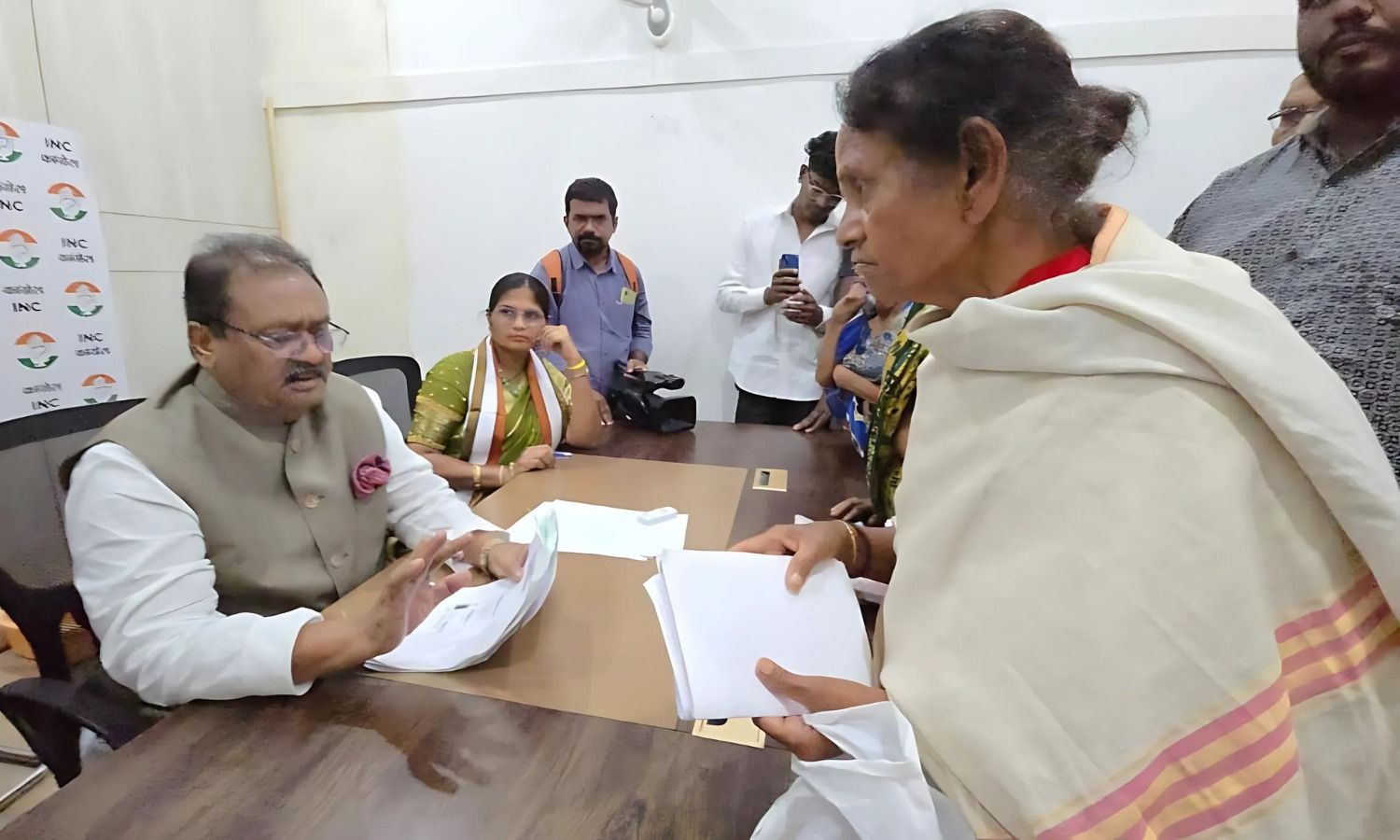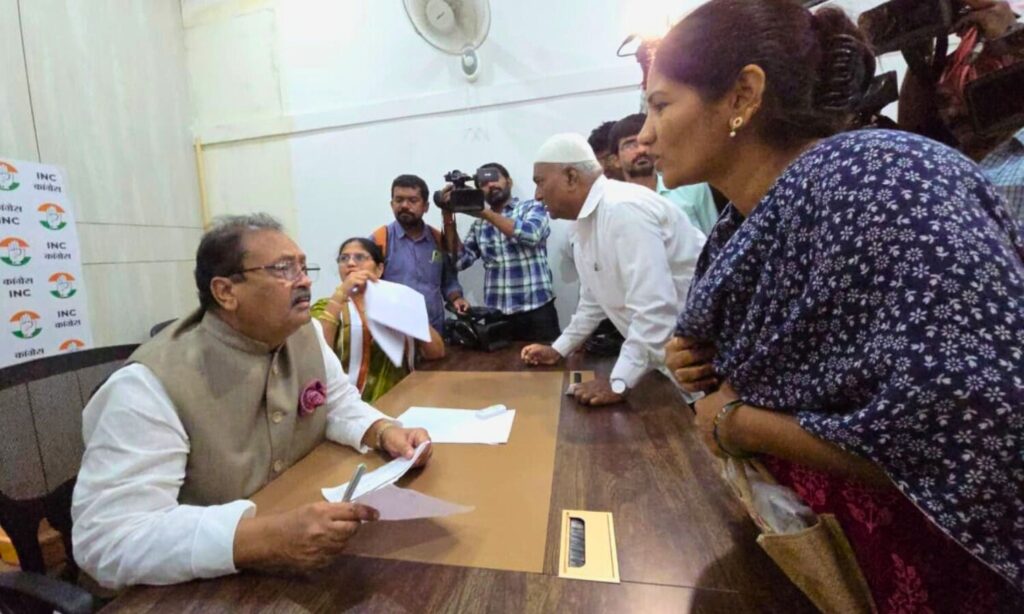Hyderabad, August 20: Advisor to Telangana Government and senior Congress leader Mohammed Ali Shabbir on Wednesday launched a sharp attack on former Chief Minister K. Chandrashekhar Rao (KCR), accusing him of trying to hide his failures in the Kaleshwaram project.
Speaking to reporters at Gandhi Bhavan after a “Face to Face with People” Prajavani programme, Shabbir Ali said KCR rushed to court even before the Justice P.C. Ghose Commission report was presented in the Assembly for debate. “This clearly shows that there were major irregularities in the project,” he remarked.
Shabbir Ali pointed out that Justice Ghose had conducted a 15-month investigation into the Kaleshwaram project, questioning politicians, experts, engineers, bureaucrats and even central agencies. “The Commission clearly stated that several mistakes were committed. The project had no approval from the Cabinet, no clearance from the Central Water Commission, and no permission from the National Dam Safety Authority. Nothing was followed, yet KCR went ahead with his own orders. Even in the old Nizam era, such mismanagement was not witnessed. KCR issued orders like ‘Farmaan’ to waste public money of over Rs 1.10 lakh crore,” he said.
He announced that the Commission’s findings would soon be placed before the Assembly for a detailed discussion. “Once the debate is held, KCR will have to face the consequences. The Congress Government will not spare anyone responsible for this scam,” he asserted.
Shabbir Ali said the Congress Government had taken historic steps to strengthen social justice in Telangana. He recalled that Telangana became the first state in the country to conduct a caste census after nearly 100 years, which revealed that Backward Classes constitute 46.25% of the population. “This survey was Rahul Gandhi’s idea, and Chief Minister A. Revanth Reddy implemented it with courage. Now, several other states are also demanding caste census on the lines of Telangana,” he said.

He noted that the Congress Government had also passed a law to increase the quota for BCs to 42%. However, the BJP-led Central Government stalled the new law, objecting to the inclusion of Muslims among the BCs.
On the issue of 4% Muslim reservation, Shabbir Ali strongly criticised the BJP for calling it a “religious quota.” He clarified that the reservation was granted on the basis of occupational and social backwardness, not religion. “Even before Independence, Muslims had reservations in education and jobs. Poor Muslims are among the weakest sections, and the Congress has always stood by them,” he said.
He recalled that it was Dr Y.S. Rajasekhara Reddy who introduced 4% reservation for Muslims in 2004, which benefitted lakhs of poor socially-backward Muslim families. The recent caste census, he said, confirmed that 10.08% of Muslims belong to the BC category.
Shabbir Ali said Chief Minister Revanth Reddy had ordered a house-to-house survey which exposed the actual economic condition of Muslims. “This was the most accurate survey in the country. It proved beyond doubt that poor Muslims need support to live with dignity,” he observed.
Responding to BJP’s criticism, Shabbir Ali said the classification of Muslims as Backward Classes was not new. “Historically, several committees and commissions identified sections of the Muslim community as socially and educationally backward. The Hunter Commission in the 1880s and the Miller Committee in 1918 highlighted this. After Independence, the first Backward Classes Commission under Kaka Kalelkar (1953–55) listed many Muslim occupational groups such as weavers, butchers, and cotton cleaners as backward,” he said.
He pointed out that many states had included Muslims in OBC lists well before the Mandal Commission. Tamil Nadu did so in 1951, Kerala in 1957, Karnataka in the 1960s–70s, and Andhra Pradesh in 1968. The Mandal Commission later estimated that about 8.4% of India’s OBC population came from non-Hindu minorities, including Muslims. When its recommendations were implemented in the 1990s, several Muslim groups were added to the Central OBC list. The Supreme Court, in the Indra Sawhney case of 1992, also upheld that backward groups within any religion could be classified as OBCs, making this constitutionally valid.
Today, he said, Muslims are part of the OBC lists in almost every major state — 38 groups in Uttar Pradesh, 22 in Bihar, 17 in Karnataka, 97 in West Bengal, almost all non-Ashraf groups in Tamil Nadu, and 14 groups in Andhra Pradesh and Telangana where a 4% quota is operational. At the national level too, Muslims figure in the Central OBC list. “This proves that Muslim inclusion in OBC lists is based on social and educational backwardness, not religion. It has been a consistent policy across states and at the Centre for decades,” he stressed.
“If the BJP has the courage, let them first remove the Muslim quota in Gujarat or other BJP-ruled states where it exists. Why target only Telangana?” he asked.
Shabbir Ali reminded that the Madiga community had been fighting for SC categorisation for 60 years, and it was the Congress that finally delivered it through the Justice Shamim Akhtar Commission and later the new Act. He recalled that Telangana was the first state to implement SC categorisation after the Supreme Court verdict of August 1, 2024. The Revanth Reddy Government passed a law dividing the SC quota into three groups to ensure justice to the most disadvantaged. “This was possible only because of Rahul Gandhi’s vision of social justice,” he said.
He also supported Chief Minister Revanth Reddy’s call to back Justice Sudarshan Reddy’s candidature for the post of Vice President. Shabbir Ali said Justice Sudarshan Reddy had served as Chief Justice of High Court and as a judge of the Supreme Court, and never had any political affiliation. He ridiculed the BJP’s claim of seeking consensus, saying such appeals should be made before announcing a candidate. “The BJP-led NDA declared C.P. Radhakrishnan as its nominee, which forced the Congress-led INDIA alliance to field Justice Sudarshan Reddy,” he explained.
Recalling Justice Sudarshan Reddy’s contributions, Shabbir Ali said the judge had upheld the idea that minorities too were entitled to reservations. “He was a great son of this soil, a socialist who stood for the poor and the marginalised,” he said.
He also accused the Centre of bringing new laws only to suppress opposition leaders. “Every day, one or the other Chief Minister or opposition leader is being targeted and jailed. The new Bill is only meant to frighten and crush opposition parties,” he alleged.
He also spoke about the Indiramma Housing Scheme, under which lakhs of applications had been received. “Houses will be allotted in two phases – first to those who already own land, and second to those without land,” he explained.
Earlier in the day, Shabbir Ali interacted with citizens at Gandhi Bhavan during the “Face to Face with People” programme. He patiently listened to their complaints, promised quick action, and in some cases directly called officials to seek solutions. He said all complaints would be forwarded to the concerned departments for resolution.
Later, speaking to the media, he said the Congress Government had restored the practice of listening to people after it came to power in December 2023. He recalled that grievance redressal systems had collapsed under the BRS regime, leaving citizens with no platform to raise their issues. “Now, under the Congress, people are being heard and their problems are being addressed,” he said. (eom)
